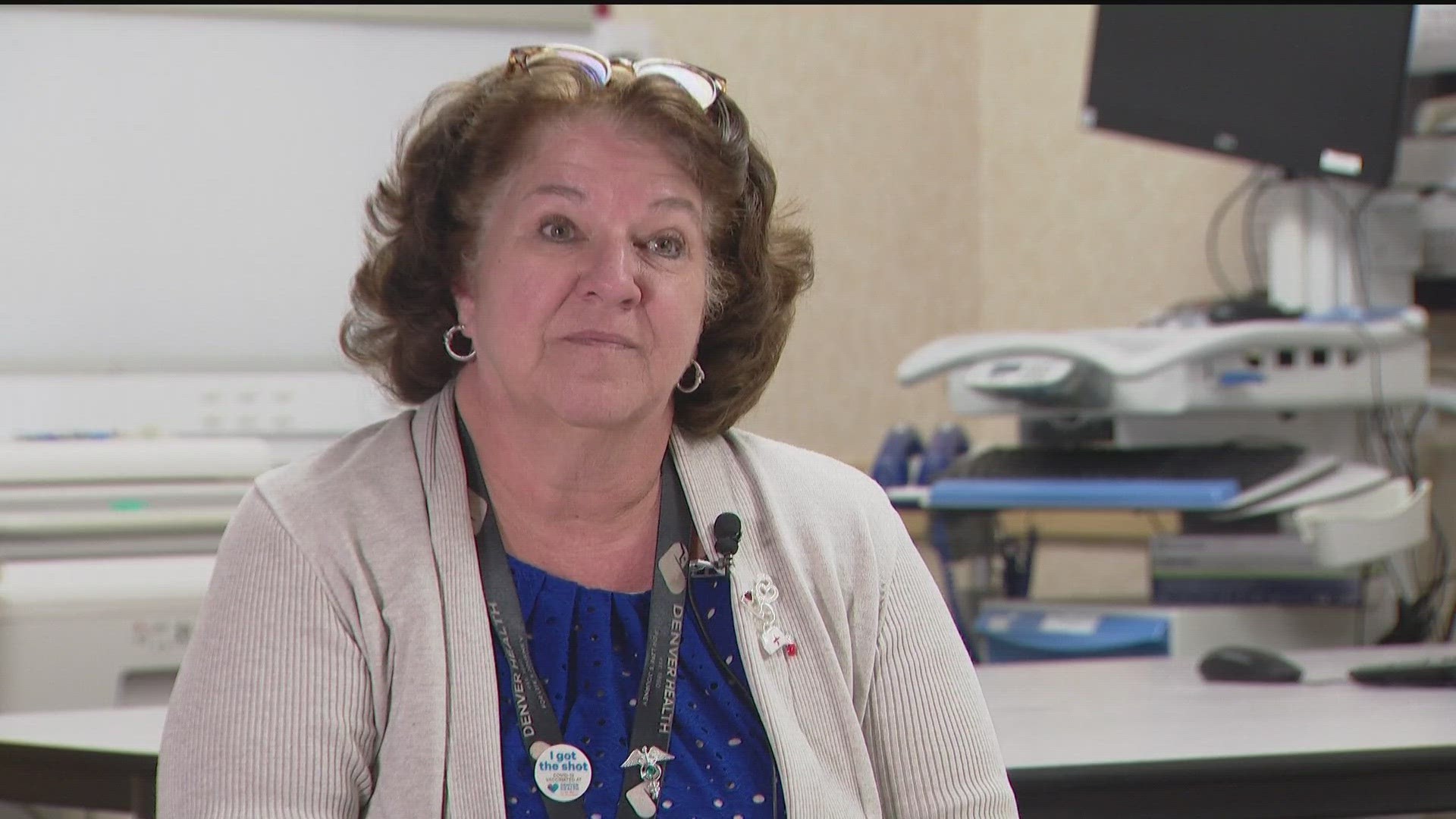DENVER — Managing nurses on the oncology floor at Denver Health keeps Mary Johnson busy -- but it's only getting harder to keep those nurses safe from near-daily attacks perpetrated by the patients they're charged with helping.
"It happens on my floor. It happens everywhere at the hospital," Johnson said. "Hits, kicks, bites, spitting. There's choking, we've had that too."
Patients and visitors attacking hospital staff is a growing epidemic at Denver Health and other hospital systems across the metro area. The violence isn't limited to emergency rooms or psych wards. Johnson said it even happens on her oncology floor.
"This is an issue that's impacting small and large, urban and rural, you name the type of hospital and they are encountering it," Colorado Hospital Association President Jeff Tieman said.
He said hospitals across the state have changed policies and procedures in an effort to stop the attacks.
"The challenge of violence in hospitals and against healthcare workers is increasingly enormous," he said.
"It's probably doubled at least in the last year or so," said Dr. Ozzie Grenardo, the chief clinical officer at CommonSpirit, formerly Centura. "It’s daily. It’s certainly daily."
He said the hospital system has added de-escalation training for staff. If a staff member is attacked and must leave work early, the hospital has a special pay code to ensure they're compensated for their shift. Grenardo also said CommonSpirit has implemented resources for staff members who file police reports against violent patients.
"If they have to testify, to then actually pay for them to be at that testimony so that we can make sure that we’re going through that whole process," he said.
New safety training at UCHealth instructs staff to familiarize themselves with exits and to be mindful of hair, lanyards and stethoscopes that may be used against them when they enter a room, Chief Security Officer Chris Powell said.
The frequency of the attacks can also increase staff concern to a level that could impact patient care, he said.
"Studies show the healthcare environment has an impact on the delivery of care. And that includes, you know, the fear," Powell said. "If [staff] walk in with fear or concern, there's opportunity there that a mistake could occur."
He said most staff are so used to the threat of violence that they work through the pressure, but working under such stress can also increase burnout in an industry already struggling to recruit and retain enough staff.
"Healthcare workers are taking inventory as to whether or not this is what they want to do," Powell said.
CHA said violence intensified during the pandemic as lockdowns increased stress, reduced access to some hospital care and limited hospital visitation. Even as healthcare environments have returned to standard procedures, however, the violence has continued.
"We're a kind of violent society, unfortunately," Tieman said. "I think sometimes unfortunately that's playing out even in the hospital."
He said CHA is asking legislators on the state and federal level to increase penalties for people who attack hospital staff, adding a layer of protection to workers who say they have an ethical and moral duty to care for patients -- even those with a history of threatening actions.
For nurses working on the frontlines, like Johnson at Denver Health, violence has become an unwelcome and unacceptable visitor at the hospital all too frequently.
"On one hand it makes me very angry because I love the nursing profession," Johnson said. "On the other hand, I learned many many years ago that you have to do something to be a solution to a problem."
She now co-chairs Denver Health's hospital workplace safety and violence prevention committee, which recently launched an educational campaign aimed at patients and visitors -- but also staff.
"We still have staff members here who have been told or who believe that accepting assaulting behavior is part of the job," Johnson said. "And part of our education is to make it very clear that that is not part of the job."
But the attacks keep happening, forcing her to take calls and care for nurses on her floor who have been attacked by their own patients.
"This was a very rare event when I started nursing 25 years ago. This was not at the forefront of your mind when you went to work," she said. "It is very sad that now nurses have to think about this."
SUGGESTED VIDEOS: Latest from 9NEWS

